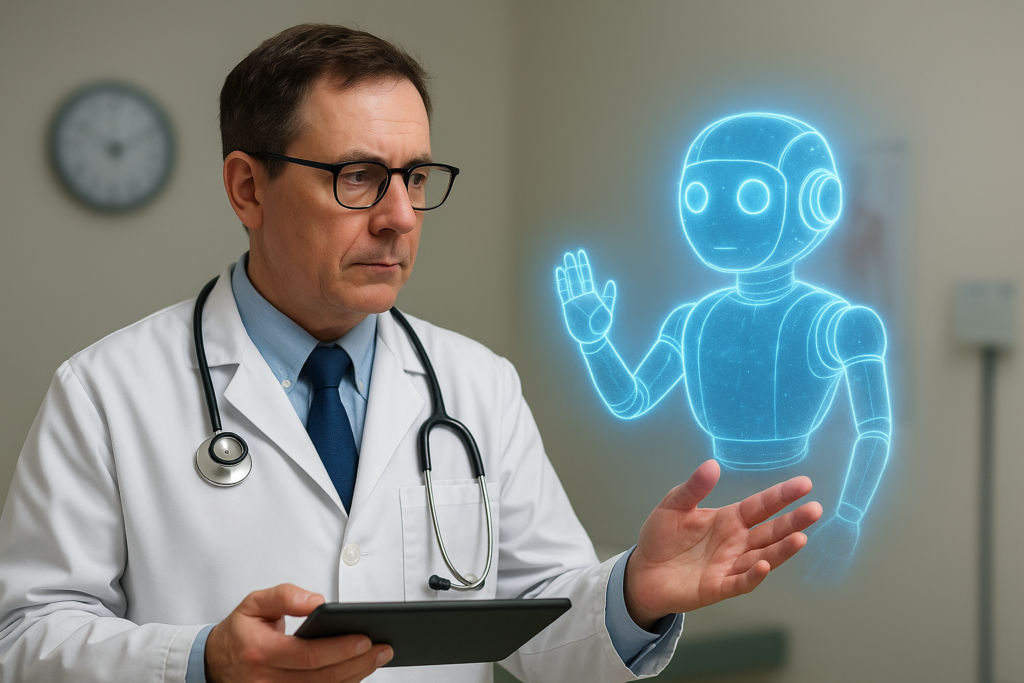Should Doctors Rely on AI? If Yes, What Questions Should They Be Asking About AI Tools?
Dr. Mili Bhatt
Artificial Intelligence (AI) is no longer a futuristic concept in healthcare—it is already influencing diagnostics, patient monitoring, drug discovery, and even treatment recommendations. Yet, while the promise of AI is immense, the question remains: should doctors fully rely on AI?
The answer lies in balance. Doctors can harness AI as a p a powerful aid, but only when they ask the right questions about its reliability, safety, and ethical use.
The Promise and the Pitfalls of AI in Healthcare
AI tools have shown remarkable potential in detecting diseases faster, analyzing vast datasets, and supporting clinical decision-making. They can reduce human error and free up physicians’ time to focus more on patients.
However, as Sayantan Datta (2025) highlights, the safety of AI in healthcare depends heavily on the humans behind it—those who design, regulate, and monitor these systems. If biases exist in the data or if regulations lag, patients could face real harm.
Similarly, Todd Shryock (2025) emphasizes that while AI can assist clinicians, it should never become a “black box” that doctors follow blindly. Instead, physicians must critically evaluate how these tools are built, what data they use, and whether they genuinely improve patient outcomes.

Key Questions Doctors Should Ask About AI Tools:
Doctors considering AI adoption should focus on:
- Data Transparency: What data is the AI trained on, and does it represent diverse populations?
- Clinical Validation: Has the tool been tested in real-world clinical settings, or only in controlled trials?
- Bias and Safety: How does the system prevent bias, and what safeguards protect patients from errors?
- Accountability: Who is responsible if the AI gives a wrong recommendation—the developer, the hospital, or the physician?
- Integration: Does the tool seamlessly fit into clinical workflows, or does it create extra steps that slow care?
By asking these questions, physicians can remain in control, ensuring AI serves as an enhancer—not a replacement—of their expertise.
A Human-Centered Approach:
- AI in healthcare is not just about algorithms; it is about people—patients who deserve safe and equitable care, and doctors who must uphold ethical responsibility. The future of AI in medicine depends on critical oversight, transparency, and compassion.
- Doctors should embrace AI, but with caution. By questioning its safety and design, they can ensure technology becomes a trusted partner rather than a risky shortcut.
References (APA):
Datta, S. (2025, June 12). How safe AI is in healthcare depends on the humans of healthcare. The Hindu. https://www.thehindu.com/sci-tech/science/how-safe-ai-is-in-healthcare-depends-on-the-humans-of-healthcare/article69681850.ece
Shryock, T. (2025, August 21). Health care AI oversight: What questions should doctors be asking about AI tools?Medical Economics. https://www.medicaleconomics.com/view/health-care-ai-oversight-what-questions-should-doctors-be-asking-about-ai-tools-?utm_source=chatgpt.com
